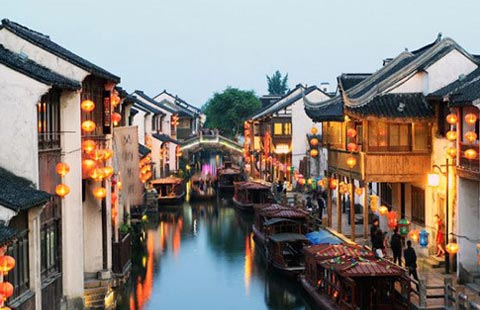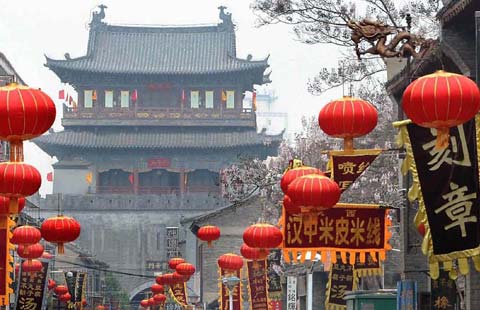Hiroshima, Nagasaki a pricy lesson for militarism
Updated: 2015-08-09 17:17
(Xinhua)
|
||||||||
The craziness of Japanese militarists during WWII is one of the major causes that the two cities vaporized in the mushroom clouds. Even facing a certain failure, Japanese militarists rejected the Potsdam Proclamation in 1945, because in their eyes the lives of civilians were irrelevant comparing to their ambitions.
The tragedies of Hiroshima and Nagasaki, along with the heinous crimes the Japanese armies committed in other countries, are the horrid examples of what frenzied militarism can cost us.
In fact, Japanese militarism is not only a danger to Japan's neighbors and regional stability, but also an alarming threat to the Japanese citizens.
As a result, the tendency of militarism resurgence in Abe's government -- pushing new security bills, holding an ambiguous attitude toward the country's war past and the covert attempts to whitewash its war criminals -- is particularly worrying.
It is obvious that many Japanese people do not like where Abe's ultra-rightist government is heading, either.
When Abe addressed the crowd Thursday in Hiroshima, shouts of protest rang out from the audience and around the park. "Retract the war bills," shouted the protesters, holding banners. In Nagasaki, similar protests took place when Abe addressed the crowd.
It is high time for Abe and his cabinet to realize that the best way to commemorate those who perished in the atomic bombings is to sincerely reflect upon its war past, because those who cannot learn from history are doomed to repeat it.
- Japan to suspend Okinawa US base relocation work
- Japan demands explanation over alleged US spying
- US surveillance of Japan blow to Abe government
- Right-wingers use pretenses to remilitarize Japan
- Japan, South Korea new destinations for Chinese property investors
- Japan approves increase in Fukushima compensation to $57 bln
- Japan's defense policy overturn 'brings Asia closer to war': expert
- Some 200 migrants believed dead in Mediterranean shipwreck
- Chinese FM rejects Philippine, Japanese, US claims on South China Sea issue
- 'Major breakthrough' may help solve riddle
- Hiroshima marks 70th anniversary of bombing
- World 'watching' Japan's next move
- Migrant boat capsizes in Mediterranean, at least 25 dead

 30 historic and cultural neighborhoods to visit in China
30 historic and cultural neighborhoods to visit in China
 Beijing Museum of Natural History unveils 'Night at the Museum'
Beijing Museum of Natural History unveils 'Night at the Museum'
 Sun Yang wins third consecutive 800m free gold at worlds
Sun Yang wins third consecutive 800m free gold at worlds
 Aerial escape
Aerial escape
 Freshmen of top universities from poorer families work part time to reduce family burden
Freshmen of top universities from poorer families work part time to reduce family burden
 17 armed forces take part in Russia military contest
17 armed forces take part in Russia military contest
 A glimpse of traditional Chinese business blocks
A glimpse of traditional Chinese business blocks
 Top 5 most popular drones in China
Top 5 most popular drones in China
Most Viewed
Editor's Picks

|

|

|

|

|

|
Today's Top News
China willing to work with US to contribute to world peace, stability
China asks further investigation on MH370
Police fatally shoot ax-wielding man at Nashville movie theater
Study-abroad tours in US booming
Malaysia confirms plane debris is from Flight MH370
IMF to study yuan inclusion
LA clinic seeks fertility-market access
China and US discuss ways to fight terror
US Weekly

|

|






